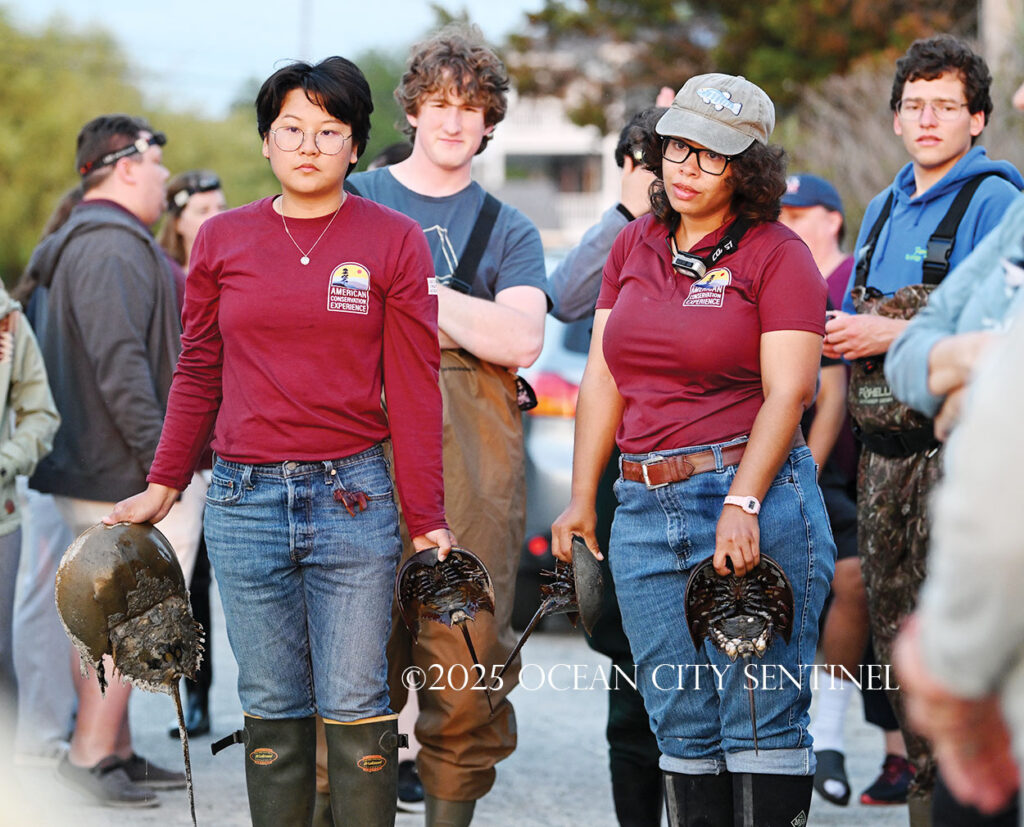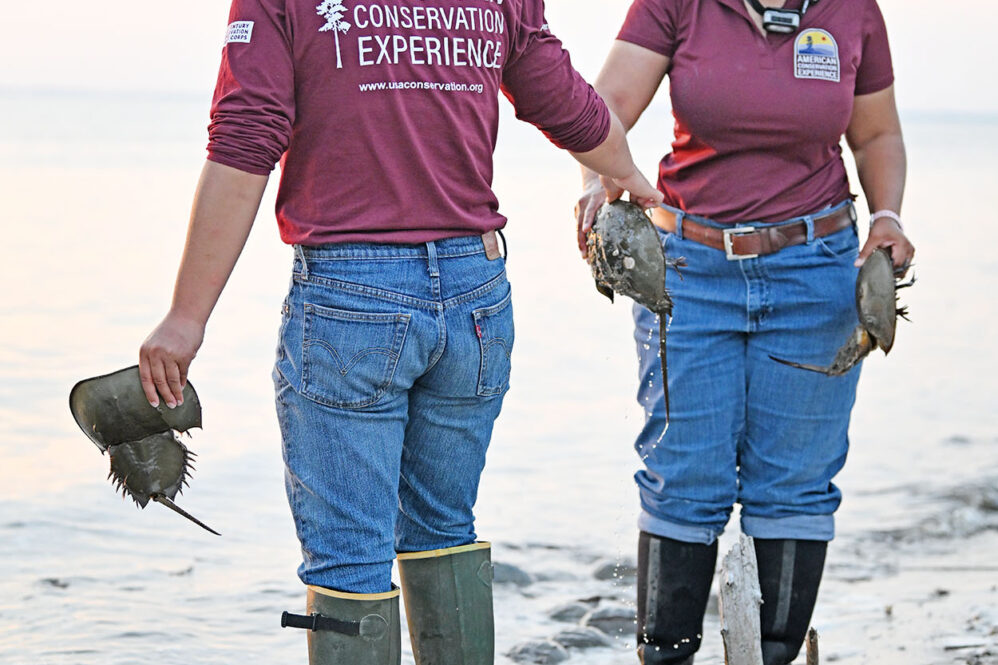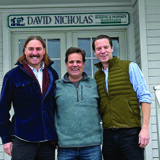CAPE MAY COURT HOUSE — Different paths led a pair of bio-interns to the Cape May National Wildlife Refuge, but both are ardent about preserving wildlife and the environment.
Kiana Itschner-Washington and Ari Huang are at the refuge as part of 21-week stints with the American Conservation Experience, a national non-profit that offers “environmental service opportunities that harness the idealism and energy of a young adult labor force to help restore America’s public lands.”
Both are from Illinois and both have ties to the East Coast, one by way of New Jersey.
Kiana is a self-described “massive, massive biology nerd” who is in her second stint with the Conservation Experience. She saw an opportunity to get back to the East Coast.
A graduate of Illinois State University who majored in conservation and biology, Kiana knew what she wanted to do from an early age.
“I think probably some of my earliest memories were running around with my grandpa always fishing,” she said about spending a lot of time in Virginia when she was a kid.
“I was supposed to be fishing, but … I’d just be running around catching bugs and snakes and staring at meadows and the water and stuff, so I don’t think there was any other real path for me, honestly.”
Ari grew up close to New York City in Bergen County, N.J., but moved to Chicago. She dropped out of college, but for her the spark was lit in school in an environmental science class.
“It’s something that always interested me,” she said. “Basically all of the subjects that we did there was something I found fascinating to learn about.”
“I want to safeguard nature because a lot of species, both plant and wildlife, are at risk,” she said. “Climate change is a huge problem nowadays. It became important to me to take care of the outside world because it’s where we live, it’s what we have.
“We need to make sure that it’s there for us and for future generations, too.”
She started with volunteering on ecological restoration work and over time began looking for jobs in the field and stumbled upon the American Conservation Experience (ACE) site that listed a range of opportunities.

“I saw things that interested me and seemed like in my wheelhouse that I could do and would be interested in doing,” she said.
The opportunity at the wildlife refuge is from May 5 through Sept. 26. The interns get paid $500 a week, not exactly a fortune, but they get lodging.
“It’s a really, really cool, great experience being able to work outside and it is just really fun and really rewarding. It’s pretty exhausting, but I think it’s worth it,” Ari said.
Kiana did her previous ACE stint as a crew experience based out of Hurricane City, Utah, right after she graduated from college. When she saw another ACE experience at the Cape May National Wildlife Refuge, she also saw the chance to get back to the East Coast.
She and Ari have been enjoying the work they do, which includes working with volunteers tagging horseshoe crabs at the Kimbles Road Beach.
The tagging
Tagging horseshoe crabs was a lot of fun, Kiana said.
“It was a little more chill than a lot of the things that we do. And it’s nice to talk to that many people and get them interested in what’s going on. It’s good for outreach and having people know the refuge is here and what we do. And also to educate them about the horseshoe crabs.
“It was fun, honestly, talking to all the people (there were more than 75 volunteers), answering their questions and helping them handle the crabs,” Kiana said. “I think that’s probably one of the more fun things we’ve done. Everything’s fun in its own way, but it’s really fun working with that many volunteers.”
“It’s really fun to engage the community,” Ari said. “Whenever we have kids that come out and do it, they always seem to have so much fun, which is really great. And it’s a good way to get them interested in the natural world and conservation.”
She said the tagging itself is pretty simple, “but it’s really important to get our data on these animals.”
Other duties
The two young women have multiple responsibilities at the refuge.
Ari said they help monitor endangered and at-risk shorebirds, such as piping plover, checking their nests and eggs to make sure they are OK and watching out to make sure there isn’t human interference. They watch out for coyotes and other predators, including crabs that can eat the tiny plover chicks that aren’t much more substantial than cotton balls on toothpick legs.
Kiana said they do surveys for endangered plants and work at various sites to control invasive species. When interviewed, she was looking forward to banding Canada geese.
“I really like all the different stuff we get to do and I like working in a specific area to improve it and seeing the results, instead of just hopping from area to area,” Kiana said.
Both like the nature of their work.
“I definitely prefer hands-on stuff,” said Kiana, not a surprise for the girl who was running around picking up snakes and bugs. “I enjoy doing research, but I feel like I have to get out there, more than doing a career in research would allow.”
She would like a future possibly in a state or national wildlife refuge, at least in the range of things she has been doing.
Ari is the same.
“I think biology-related jobs would be really cool,”Ari said.
Kiana also wants the public to know more about the wildlife refuge system.
Heidi Hanlon, a wildlife biologist for the U.S. Fish and Wildlife Service stationed on Kimbles Beach Road, said she “definitely” appreciates having Ari and Kiana working with them.
“I think they’re enjoying it and we’re certainly enjoying having them,” Hanlon said. “We are such a small staff, so the fact that we can work through ACE to hire them” is important.
“We can’t do the work with the small staff that we have so we rely on having interns to help do this type of work through the summer. And it’s great for the interns,” she said. “Over the years we’ve had interns that go on to get full-time jobs with the Fish and Wildlife Service or get full-time jobs with another federal agency or another state agency.
“It just gives them a lot of great experience to then get their foot in the door and be able to get hired for a full-time position.”
By DAVID NAHAN/Cape May Star and Wave


